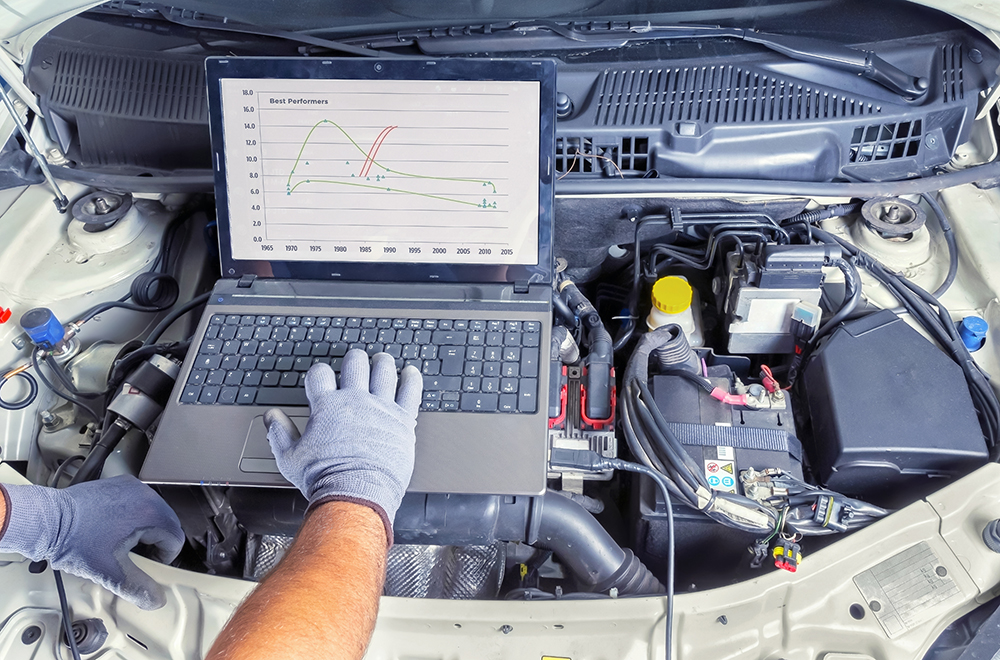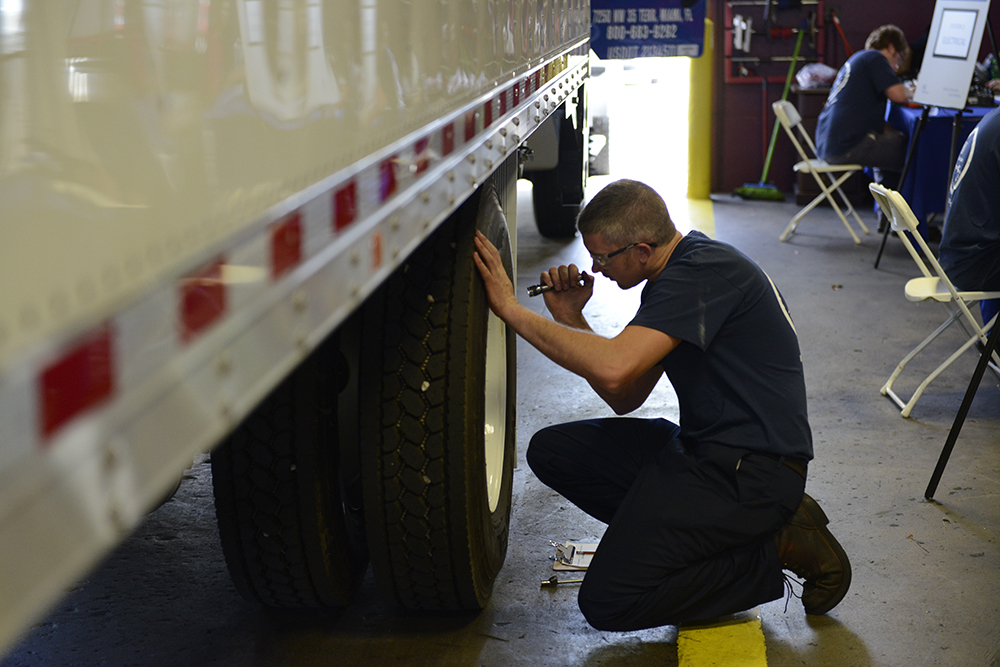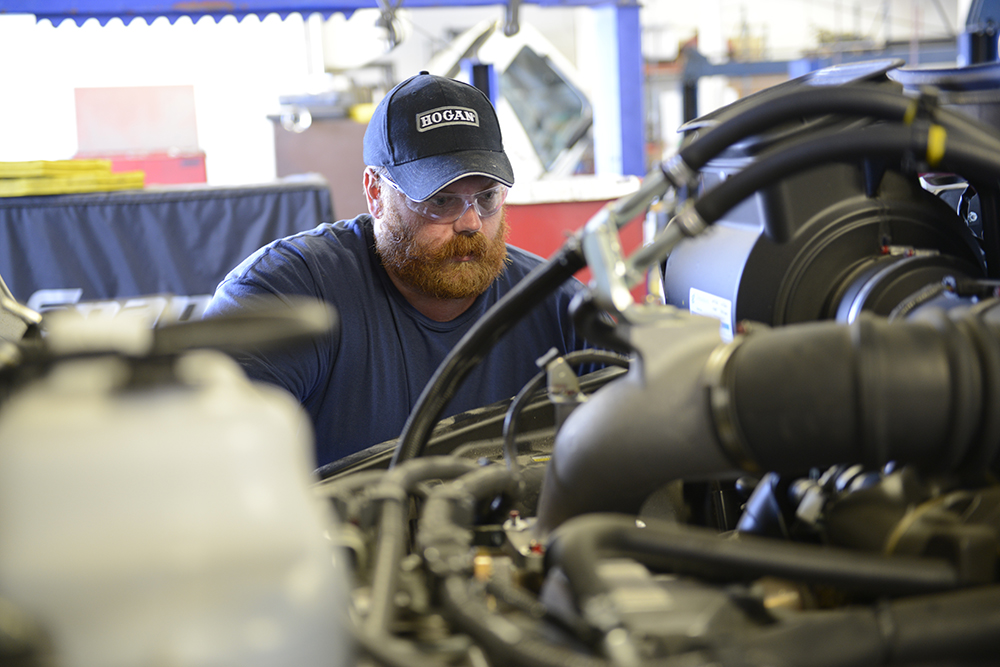The trucking industry is going through dramatic changes with truck technology advancing at levels that few could have predicted twenty years ago. My most recent blog on this site focused on electric trucks and the challenges this technology posed. One of the challenges is to the diesel technician workforce. “Techs are already having to learn new technology constantly, including telematics. Now, these technicians will have to learn to operate on two kinds of engines, diesel and electric.”
Today’s technician toolkit is as likely to include a laptop as it is a wrench, but the workforce is aging which may not bode well for companies that need to hire. According to the Bureau of Labor Statistics, the average age of “bus and truck mechanics and diesel specialists is 41.2” which means that about half of that labor force will retire in the next few decades. According to the American Trucking Associations, more than 200,000 technicians will be needed by 2030 just to keep up with demand. Who is going to fill those openings, and will they be prepared for the new reality of today’s and tomorrow’s technology?
Changing technology can benefit recruiting
The most important thing a fleet must do, when it comes to recruiting and retaining technicians is to ensure that the knowledge and skillsets of candidates and workers match the fleet technology; not only the technology your fleet has today, but also the technology it will likely have in the near and not-so-near future.
- Change can be good – Rather than advanced technology being a deterrent, it can actually be a boon when it comes to attracting younger workers. Millennials and Gen Z, those born between 1981 and 2012, have grown up with technology that changes rapidly, and they are used to adapting to (often enthusiastically) these advances.
- Physical demands are less demanding – Although technicians still are doing some heavy lifting, technology has offset much of the heaviest work. While a tech still needs to do preventative maintenance and brake work, many other tasks are technical in nature. This may make it easier to appeal to women.
- The job has gone through an image change – When people think of truck technicians, it likely conjures up images of sweat-stained overalls and greasy hands. While techs still do get their hands dirty, much of the job is, again, technical. That’s why you rarely hear the term, diesel mechanic; it’s now diesel technician…and with the introduction of alternative fuels and EVs (electric vehicles), the image will continue to change.
Diversity can make a difference
Demographics show that the industry is likely missing out on huge swaths of potential workers when it comes to technician jobs. Although women make up more than 50% of the national population, they only constitute a little over 9% of diesel technicians. And with the demographic shift occurring in the country, only about 31% of techs are minorities.
Companies have many ways of connecting with job seekers in today’s connected economy, including sites like LinkedIn, Indeed, Facebook, and Instagram, as well as online postings by individual companies. Rising wages, better benefits, signing bonuses, and the chance for ongoing training should be communicated effectively to all communities to attract the next generation of technicians.
Training is really essential; that’s why OEMs are working, either independently, or with vo-tech schools, to create training programs that enable techs to keep up with continual advances. These training centers are great resources when looking for candidates for your own fleet.
When necessary, outsource
Having your own maintenance crew can be costly…and so can ongoing training. Some companies may decide this is not where they want to focus time or money. For those fleets, outsourcing may make more sense. Many of NationaLease’s customers have taken advantage of our Contract Maintenance which takes on the burden of covering a vehicle’s entire maintenance.
How the job description for what is now a diesel technician will change over the next few decades is impossible to predict. What is clear is that this specialized trade will continually search for the special people that will heed the call.




